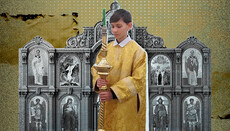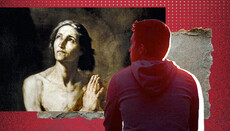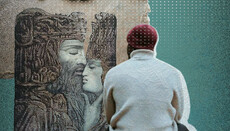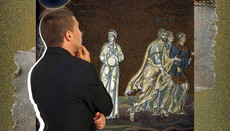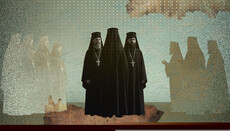Can the coronavirus pandemic do good to Christians?
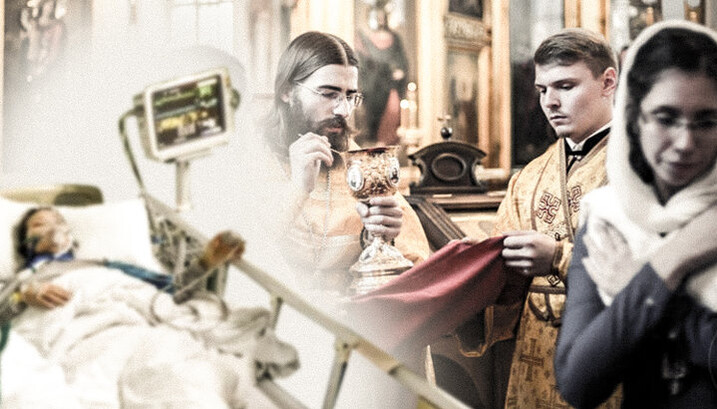
People die in the coronavirus pandemic, which makes us see evil in it. But is there anything in the outbreak of the disease that can help us Christians?
The coronavirus epidemic has not yet reached its peak. It is so far so its final stage that it seems to many that it will never come. However, now it is already possible to draw certain conclusions from this story and see some trends and new realities in which we and the Church will have to live in the near future.
We should note right away that in this situation there is one important rule that Christians have always been guided by – there is nothing clearly bad (except sin and Satan) in this world. Moreover, even sin and the devil’s actions can be turned by God to our benefit. Mephistopheles’ words "I am part of that power which eternally wills evil and eternally works good" in this sense are actually wrong – Satan wants evil, but it is God who ultimately turns all his evil into good.
Let’s look at this thesis through the prism of the coronavirus.
Coronavirus and economics
This disease came so suddenly that humanity was completely unprepared for it. A rapid increase in the number of cases, many deaths and hitherto unprecedented quarantine measures – can there really be anything good about this?
Certainly, not. Disease is bad, death is also, and quarantine is not good for anything but fighting the epidemic. We can confidently state that we are on the verge of the economic crisis of a global scale, which no country will recover without losses. And this, in turn, will lead to an increase in unemployment, devaluation of national currencies, impoverishment of the population, and, possibly, the starvation of many inhabitants of undeveloped countries (including Ukraine now).
We can confidently state that we are on the verge of the economic crisis of a global scale, which no country will recover without losses.
Here is a quote from an article by journalist Semen Novoprudsky: “If quarantine madness is not stopped in the next few weeks, people will start stopping it themselves: simply because death from hunger is no better than death from a virus. Only such a death toll can be much higher."
And one more thing: “It is indicative that China, surprisingly, began to lift the total quarantine exactly when official data on the country's economic indicators for February came out. By February 2019, industrial production had fallen by 13.5%, and retail turnover – by 20.5%. Such a fall can occur only in the midst of a destructive war in a country that is losing this war. This is not even a fall but a catastrophic collapse. American investment banks predict a collapse of 20-30% of the world's major economy – the US. Because of the barbaric methods of combating the coronavirus, we can get more damage than World War II did and starve more people than died in this bloodiest war in human history. And much more than this coronavirus will kill.”
Is there anything good in all this? Of course, not.
Did the coronavirus do us any good?
“No” in response to the previous question sounds categorical only at first glance. The thing is that the coronavirus, in addition to all the bad things, has already brought some positive notes to our human society. Moreover, it is safe to say that the “post-coronavirus” humanity will gain a completely different point of view on many issues of its existence.
For example, until recently, older people have been perceived by some as an unnecessary, unprofitable burden for modern society. They have existed at the expense of others, receive an allowance, and enjoy many benefits ... And what is now? The coronavirus taught us to value the elderly, to appreciate our parents, all those at risk. Suddenly, we realized that we could lose them, that the time would come when we could no longer see them, hear their voice and just hug them. The coronavirus made many people change their attitude towards them.
The coronavirus taught us to value the elderly, to appreciate our parents, all those at risk. Suddenly, we realized that we could lose them, that the time would come when we could no longer see them, hear their voice and just hug them.
The family? Until recently, many of us have appeared in the family for a few minutes a day. We stopped communicating with children, a spouse, we simply forgot how to coexist with each other. The coronavirus sent us all home and made us establish family contacts, learn to live and get along together. Yes, the Internet significantly hinders in this matter, but it’s not the end, is it? Maybe, there will be changes in this regard, too?
Even our appearance is undergoing changes due to the coronavirus. Now women do not have to stand idle in front of the mirror in order to “look good” – a mask equals everyone, leaving open only the “mirrors of our soul”, eyes. We suddenly remembered that external beauty is not the main thing in a person. We again learn to look into each other's eyes, learn to see in another what was hidden behind the beauty of the face and layers of cosmetics.
Because of the coronavirus, the production of many goods suspended for several months, which means that the amount of bad waste decreased, which enabled the planet to breathe freely, and some people first saw the sun and breathed oxygen without smoke ...
Say that all these are cold comforts? We do not argue, it may be so. Cold comforts for now. But who said that in the future they will not make a difference to the world, they will not change us?
We believe in God but fear the coronavirus? Or no longer believe?
However, much has already changed for us, believers, now. In some Local Churches, the divine services have been cancelled, in others – only priests, without parishioners, serve. In the Ukrainian Orthodox Church, the number of church-goers is limited or the service has moved to the street. A huge number of people got frightened and stopped going to church, watching live streams of services. With renewed vigour in Orthodoxy, the question arose as to what is in the Chalice: the life-giving Body and the Blood of Christ or ordinary bread and wine that transmit the infection. The Sacrament of Communion itself from the "usual" and "traditional" has become almost an act of confession, as well as participation in the worship. Temples are closed, and you cannot go to those that are open. Quarantine.
Many in this regard recall the words of St. Laurentius of Chernigov: "Shortly before the accession of the Antichrist, the closed temples will be repaired, furnished not only outside but also inside ... And you see how all this is cunningly prepared? All temples will be in the greatest splendour as ever, but you won’t be allowed to go to those temples..." Well, given the threat of creating a global government, supposedly to fight the coronavirus and introduce mass electronic control to track the infected and those who come into contact with them, it looks very bad. But don't jump to conclusions...
Why do we not think of God in this regard? Why do we not try to understand that He and only He will decide the final destinies of the Church, the world, and each of us? Why do we forget that the Church has already gone through such things? The gates of hell shall not prevail against it, remember?
Let's think: if everything that is happening today is evidence of the imminent accession of the Antichrist, then this means that Christ will come very soon! It means that all that is said in the Scriptures will be fulfilled. Moreover, do we not say every day in the Creed: "I believe in one God, the Father almighty, maker of heaven and earth and of all things visible and invisible, and in one Lord Jesus Christ... He shall come again with glory to judge the living and the dead, and His kingdom shall have no end ... and I look for the resurrection of the dead and life of the age to come. Amen."? We say that we believe, we say that we’re waiting, and when, perhaps, the Lord is near – it turns out that we fear and are not waiting ...
Why do we not think of God in this regard? Why do we not try to understand that He and only He will decide the final destinies of the Church, the world, and each of us?
Through sorrows, we become stronger
Besides, let's remember the most recent events. When there was the first talk that the Phanar recognized Ukrainian schismatics, many did not believe in it. Such a step by the Patriarchate of Constantinople looked so terrible, illogical, cynical, anti-canonical and treacherous that only a man with a bright fantasy could believe in it. Because almost everyone understood – the appearance of the Tomos was the end for the Ukrainian Orthodox Church. The ill-wishers predicted that thousands of parishes and entire eparchies would join the Phanar’s branch in Ukraine, that millions of Ukrainian Orthodox Christians would turn away from the UOC, the UOC itself would turn into a marginal structure, and those who remained faithful would be forced to go into catacombs.
And have these "prophecies" come true? No. Not only they were not fulfilled, but the results of granting the Tomos turned out to be directly opposite to what was expected of them.
Out of more than 12,000 temples, our Church lost about 500. And most of these temples were simply taken away while parishes, communities, remained. Not a single eparchy has passed to the OCU, millions of believers who were expected to rush into this new structure only united around the UOC. Moreover, the man who put his whole life into the struggle against the canonical Church – Filaret Denisenko, whose influence on politics, religious sphere and interchurch relations only a year ago seemed to be unshakeable, almost disappeared from the life of Ukraine and society. What is he fighting now? His own brainchild, the OCU. Could any of us imagine such a year ago?
We should also note the fact that the communities that lost their temples did not lose their faith, but on the contrary – only strengthened in it. If earlier people took the temple for granted, but now the temple for them is a meeting place of the Church, a place where the Body and Blood of Christ testify to the presence of God. The communities have become much more united, stronger. People do not come to the church to look at the beautiful painting or enjoy the beautiful singing of the choir – people come to pray. In garages, houses, under sheds – like the first Christians, for whom it was not the external but the internal that mattered, and the community was not a collection of random people, but a family, the Church in Christ.
The coronavirus now creates a similar situation but not for the selected but for everyone.
Who has words of eternal life and where should we go?
The fierce struggle against the Sacrament of Communion, which unfolded in connection with the danger of coronavirus disease, made me look at the Chalice differently. From now on, even after everything is over, the Communion will no longer be the same. He who doubts will strengthen in doubt, he who believes will strengthen in faith.
We want to remind you of the “Eucharistic passage” from the 6th chapter of the Gospel of John, which perfectly demonstrates today's realities.
Addressing the Jews, Christ declared: “I am the bread of life. Whoever comes to me will never go hungry, and whoever believes in me will never be thirsty. But as I told you, you have seen me and still you do not believe. All those the Father gives me will come to me, and whoever comes to me I will never drive away. For I have come down from heaven not to do my will but to do the will of him who sent me. And this is the will of him who sent me, that I shall lose none of all those he has given me but raise them up at the last day. For my Father’s will is that everyone who looks to the Son and believes in him shall have eternal life, and I will raise them up at the last day.”
Then the Jews began to argue sharply among themselves, “How can this man give us his flesh to eat?” Jesus said to them, “Very truly I tell you, unless you eat the flesh of the Son of Man and drink his blood, you have no life in you. Whoever eats my flesh and drinks my blood has eternal life, and I will raise them up at the last day. For my flesh is real food and my blood is real drink. Whoever eats my flesh and drinks my blood remains in me, and I in them. Just as the living Father sent me and I live because of the Father, so the one who feeds on me will live because of me. This is the bread that came down from heaven. Your ancestors ate manna and died, but whoever feeds on this bread will live forever.” He said this while teaching in the synagogue in Capernaum. On hearing it, many of his disciples said, “This is a hard teaching. Who can accept it?” Aware that his disciples were grumbling about this, Jesus said to them, “Does this offend you? Then what if you see the Son of Man ascend to where he was before! The Spirit gives life; the flesh counts for nothing. The words I have spoken to you—they are full of the Spirit and life. Yet there are some of you who do not believe.” For Jesus had known from the beginning which of them did not believe and who would betray him. He went on to say, “This is why I told you that no one can come to me unless the Father has enabled them.” From this time many of his disciples turned back and no longer followed him. “You do not want to leave too, do you?” Jesus asked the Twelve. Simon Peter answered him, “Lord, to whom shall we go? You have the words of eternal life. We have come to believe and to know that you are the Holy One of God.”
Something similar is happening now - because of the coronavirus, "many have turned back and no longer followed Christ".
St. John Chrysostom, explaining the Savior’s words, writes: “By this, He showed that they, having turned back (from Christ), broke their success in virtues and lost the faith that they had had before. He didn’t say (to His disciples): leave because it would mean driving them away, but he says inquiringly: You do not want to leave too, do you? – which shows that He takes out any violence and compulsion and wants them to remain with Him not because of any shame, but because of a feeling of gratitude ... But Christ did not flatter or drive away but only asked. And this is not because He despised the disciples but because he did not want to keep them with Himself by force and compulsion as to stay for this reason is the same as to leave.”
And today the Lord does not force us to remain with Him but gives us the right to choose, the right to make independent decisions. And we should stay with Him not out of shame (what people will say if I do not come to the Liturgy) but solely out of gratitude, which requires us to review our religious beliefs and take them more seriously.
Yes, the danger of the further spread of coronavirus poses a serious threat to our temples and the usual temple worship. We can lose all this. This means that already now many Orthodox Christians perceive the Liturgy and the church in a completely new way. Strange as it may seem, but we always value more what we can lose. And already now we can see – in many temples those believers who have made a conscious decision to go to worship (observing all quarantine norms), almost all receive communion. Like in the first Christian communities.
Whatever paradoxical it may sound, the coronavirus gradually, day after day, destroys the lazy, spiritual slackness and allows us to take our faith much more seriously.
Surprisingly, the percentage of partakers in the Liturgy, compared to the percentage of participants in it, has become higher. In many temples, rectors and ordinary parishioners note that people desire Communion because they understand that they can lose it at any moment.
Whatever paradoxical it may sound, the coronavirus gradually, day after day, destroys the lazy, spiritual slackness and allows us to take our faith much more seriously. Staying home, at a computer monitor or a TV screen, many of us can review our attitude towards the Church, our faith, and our worship. And I would like very much that after the quarantine, after the coronavirus, our temples will be filled with transformed Christians, for whom the Sacraments of the Church are the Sacraments of life, opening the door to Eternity.
